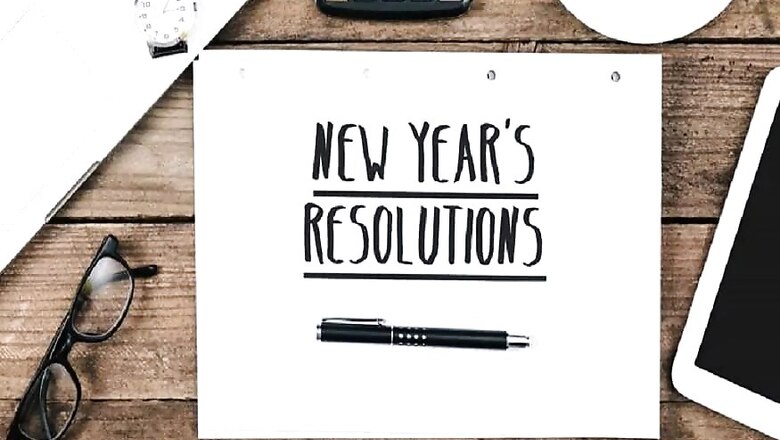
views
With New Year 2021 just a few days away, people are waiting for the catastrophic year 2020, where we faced Covid-19, to end. Those who consider New Year as a life altering event also believe strongly in making resolutions for the New Year. But have you ever wondered how and why this tradition started?
The decision to declare January 1 as the New Year was taken in 153 BC by Roman Senate but was made official almost a 100 years later by Julius Caesar in 44 BC.
But the practice of New Year celebration and resolution is said to go back even further, 4,000 years from now and was started by the Babylonian civilisation. Understandably, their celebrations were quite different from how the world celebrates New Year today.
On the festival of Akitu, people living in the civilisation were known to pray to their Gods, plant crops and reaffirm their loyalty to the king.
It was the belief of Babylonians that keeping promises to Gods and fulfilling them would benefit them. However, unlike the current practice where people make promises to themselves of losing weight or eating healthy on New Year, Babyloinians would promise to return their debts and any borrowed items.
Unlike our New Year, which is celebrated only on January 1, their festival was a 12-day-long affair. Even during the reign of Caesar, the New Year resolutions were more about making a promise to the Gods than resolving to do something on your own.
It has also been found that during the Middle Ages, towards the end of every year, the knights would take a pledge to uphold the values of the knighthood.
Away from the traditions, in the current times, resolutions are mostly promises that an individual makes to himself/herself. The practice started traditionally amongst Christians. However, as the Gregorian New Year is celebrated across the world, the practice of making resolutions has also been adapted by many around the world, regardless of their faith or ethnicity.
Read all the Latest News, Breaking News and Coronavirus News here















Comments
0 comment